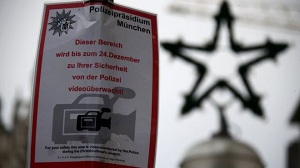Public video surveillance appears set to become more commonplace in Germany after the lower house of parliament approved a package of new measures. Security concerns will now be given greater weight against privacy when venues such as shopping centres apply for permission to install cameras. Only now will federal police get systems to scan car license plates. Bad memories of Communist-era state snooping have made Germans wary of extending surveillance powers. But mass sexual assaults on women in Cologne on New Year’s Eve in 2015, and a string of attacks on civilians in July, prompted Interior Minister Thomas de Maiziere to introduce the bill of measures.
Pressure for more effective security measures increased further after December’s lorry attack on a Christmas market in Berlin. “The attack on the Christmas market at Breitscheidplatz in Berlin, as well as the attempted attack in Ansbach and the shooting spree in Munich in the summer, have shown quite clearly: terrorists and offenders choose frequently crowded public areas for attacks to inflict the greatest possible damage.
The Federal Government therefore wants to amend the regulation on video surveillance in the Federal Data Protection Act. The protection of life, health or freedom of people should be regarded as a ‘particularly important interest’ in video surveillance by private operators in publicly accessible areas. Data protection authorities are to take particular account of this statutory assessment when examining video surveillance.”








